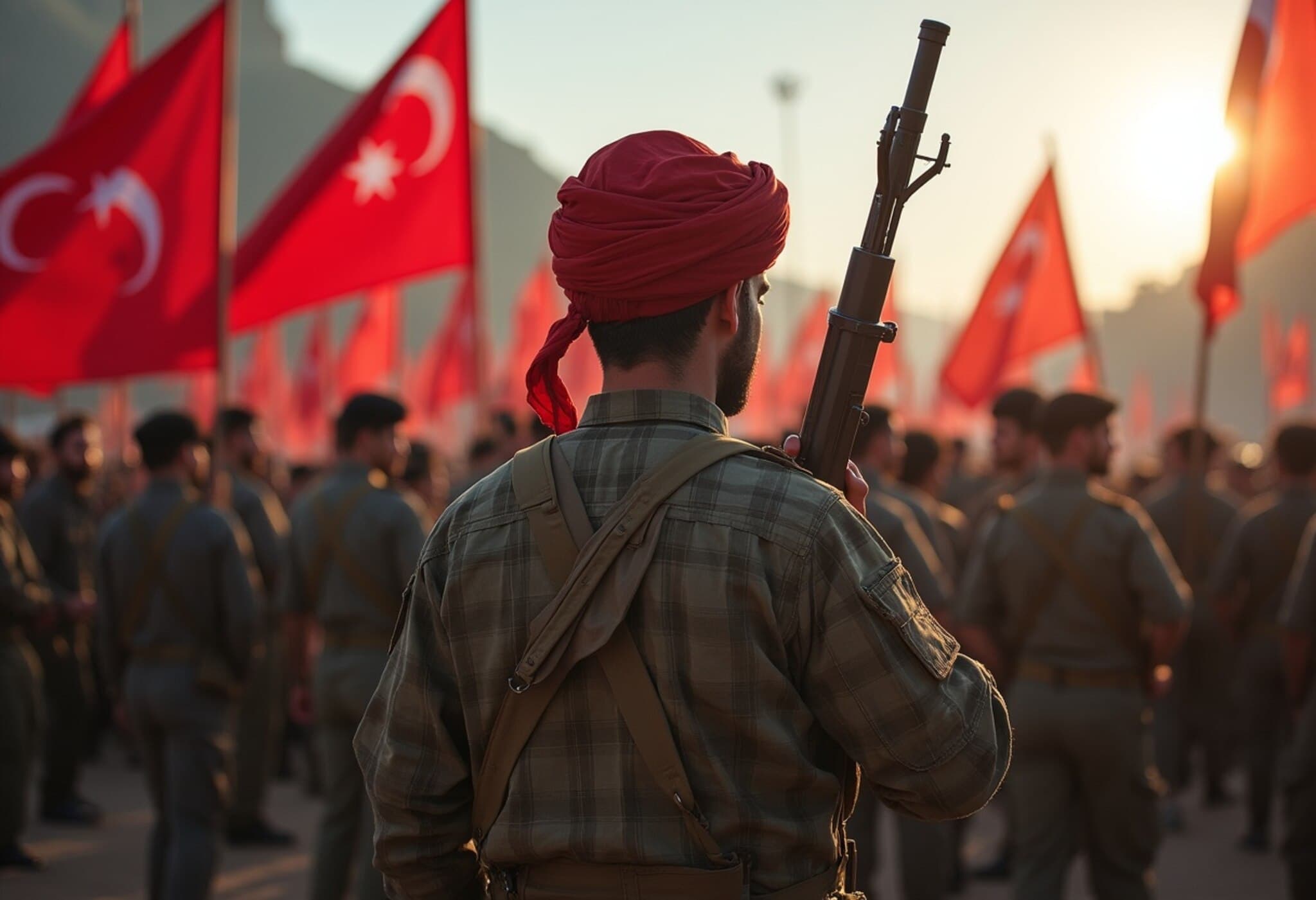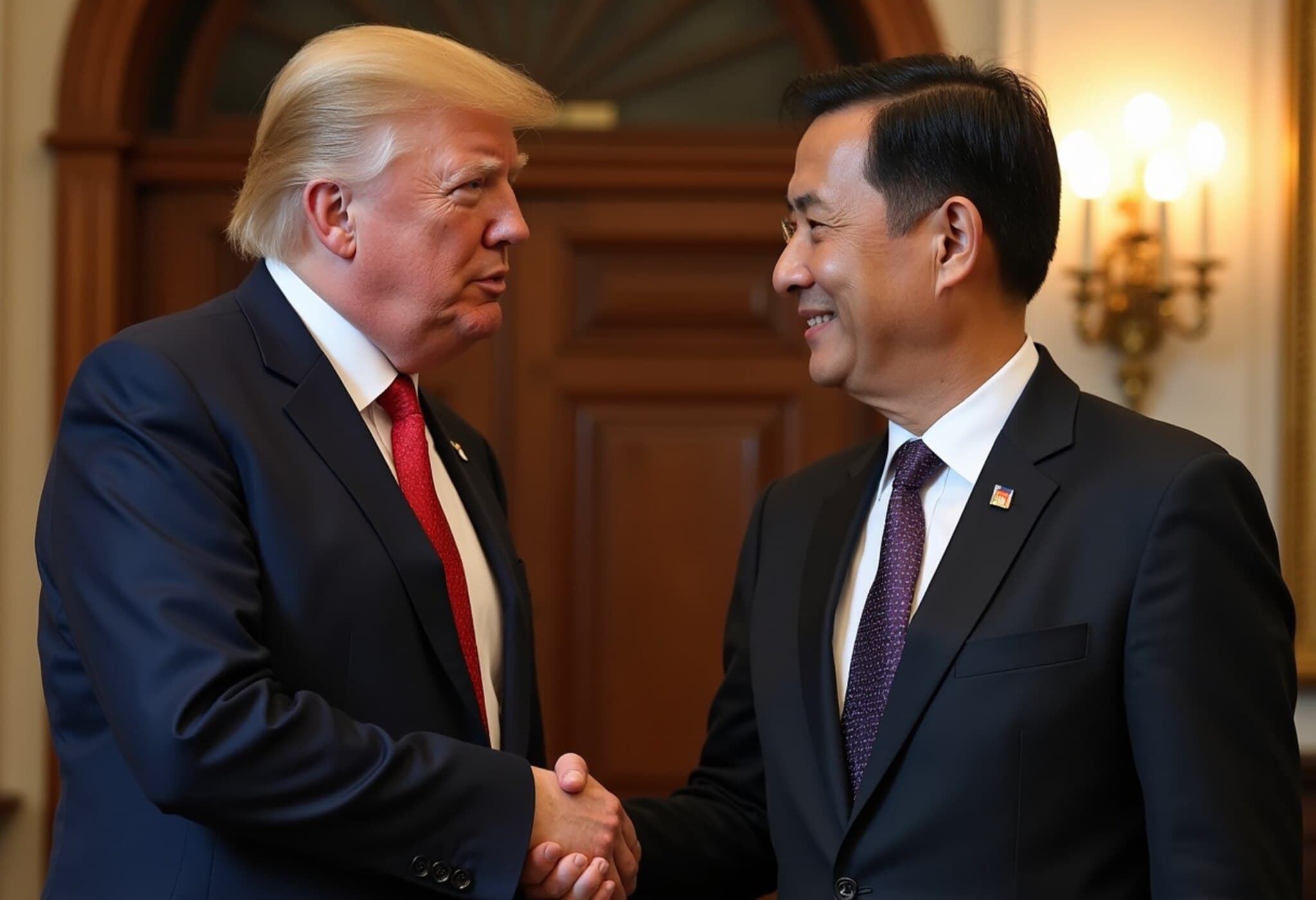From Bullets to Ballots: The Historic Shift in Turkey-PKK Relations
In a watershed moment for Turkey and its Kurdish minority, fighters from the Kurdistan Workers’ Party (PKK) began formally laying down their weapons in northern Iraq this past Friday. This groundbreaking event marks the end of the group’s decades-long armed insurgency against the Turkish state and signals a pivotal move toward political and democratic engagement.
Unpacking the Peace Breakthrough: 5 Key Insights
1. The Catalyst: Abdullah Ocalan’s Bold Call
At the heart of this historic development lies the symbolic and strategic leadership of Abdullah Ocalan, the imprisoned PKK founder. In a remarkable February 2025 appeal from his prison cell on Imrali Island, Ocalan urged PKK members to forsake armed conflict and embrace democratic, peaceful methods to advocate for Kurdish rights. His message marked a profound shift in the narrative of Kurdish resistance and has been embraced by both militants and segments of the Turkish political establishment.
2. A Turbulent History: From 1978 to the Present
- Formation and Armed Struggle (1978-1984): The PKK originated in 1978 with Marxist-Leninist roots, founded by Ankara University students aiming to achieve Kurdish autonomy through armed rebellion. After fleeing Turkey due to the 1980 military coup, the group launched military operations from Lebanon’s Beqaa Valley in 1984, igniting a prolonged conflict.
- Ocalan’s Capture (1999): After years in exile, Ocalan was captured in Kenya and returned to Turkey where he was sentenced to life imprisonment, symbolizing a turning point in the conflict.
- Fragile Truce and Collapse (2013-2015): Attempts at peace culminated in a fragile ceasefire which collapsed following a deadly bomb attack in Suruc and escalating tensions.
- Renewed Clashes (2015-2016): Fierce urban warfare ensued, especially in southeastern cities such as Diyarbakir, leaving a bitter legacy for civilians amid government crackdowns.
- A New Dawn (2024-2025): After years of stalemate marked by intermittent violence, nationalist allies of President Erdoğan surprisingly extended an olive branch to Ocalan, leading to indirect negotiations facilitated by the pro-Kurdish Equality and Democracy Party (DEM).
3. The Political and Social Ramifications for Turkey
This peace deal is not just a ceasefire; it represents a fundamental recalibration in Ankara’s approach to Kurdish issues. For decades, Kurdish grievances have been met with military responses, leaving tens of thousands dead and deep scars across the region. The transition from armed insurgency to democratic politics opens pathways for better Kurdish representation and integration within Turkey’s democratic framework.
4. Regional and International Implications
Turkey’s conflict with the PKK has reverberated beyond its borders, involving neighboring countries like Iraq and Syria where Kurdish populations also reside. The peace initiative may reduce cross-border tensions and diminish the militarization of the region. It also signals a potential shift in Turkey’s security policy, potentially easing its strained relations with Western allies concerned about human rights and regional stability.
5. The Challenges Ahead: Trust, Implementation, and Inclusivity
While the ceasefire ceremony and disarmament are promising, history cautions us that peace processes require sustained political will, trust-building, and inclusion. The imprisonment of Ocalan remains a sensitive issue among Kurds, and political repression against Kurdish politicians and activists has not fully abated. Moreover, the broader Kurdish community seeks assurances that democratic rights will be fully respected and that socio-economic disparities in southeastern Turkey will be addressed.
Expert Analysis: Navigating a Complex Peace
From a policy perspective, this moment presents a rare convergence of hardline nationalism and long-sought Kurdish demands. Political analysts observe that Erdoğan’s government appears to be recalibrating its position, possibly to consolidate domestic political strength ahead of upcoming elections while reducing security expenditures. For the Kurdish movement, embracing democratic frameworks reflects pragmatic adaptation, recognizing that armed conflict has not achieved their goals.
This transition is emblematic of broader global patterns where insurgent groups evolve from militarized opposition to political stakeholders. However, the success of such transformations depends heavily on trust, genuine power-sharing, and social reconciliation—a complex and ongoing process that Turkey will need to manage carefully.
Looking Forward: A Fragile Hope for Peace
The end of PKK’s armed struggle invites cautious optimism. For the Kurdish population, it holds the promise of a future where rights are pursued through ballots rather than bullets. For Turkey, it offers an opportunity to heal long-standing wounds and move toward inclusive governance.
Editor’s Note:
As the world watches this landmark peace unfolding, several questions loom large: Can Ankara and Kurdish political actors bridge their deep mistrust to build lasting peace? Will this deal inspire similar insurgent groups worldwide to consider democratic means? And how will the international community support Turkey in this delicate transition? Only time will tell if this bold step from bullets to ballots can rewrite the story of one of the most entrenched conflicts in modern history.











